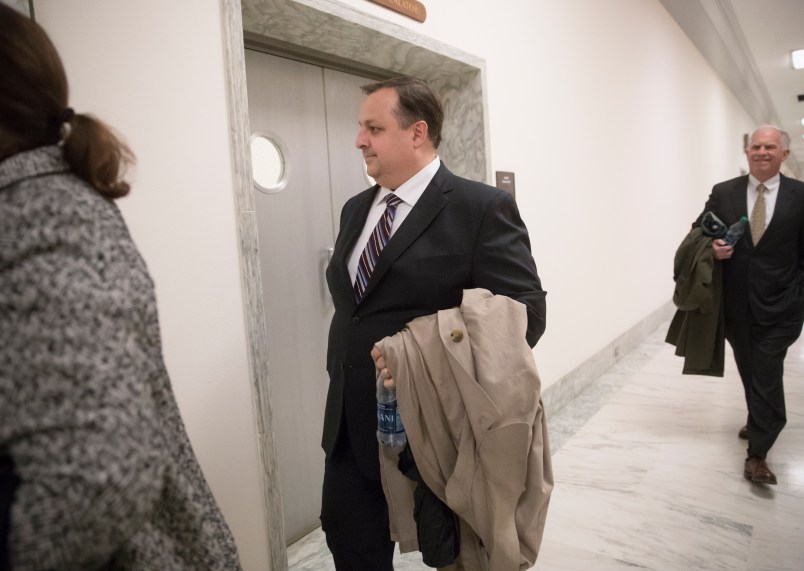The day after he left his post as head of the U.S. Office of Government Ethics, former director Walter Shaub appeared on CNN Wednesday morning, spouting off a list of ethical abnormalities he encountered working under the President Donald Trump administration.
Shaub said he was “horrified” by an incident in which Trump’s lawyer asked if the President could file his financial disclosure form without signing it.
“You need to set a strong ethical tone from the top. Tone is everything in government ethics,” he said. “And what your appointees do is going to follow what you do. We’ve seen a number of incidents that I’ve tried to highlight over the past several months where they’re not following the traditional ethical tone and behaving in a way government officials always behave, and that has really hurt us along the way.”
On top of giving the appearance that he is “profiting from the presidency” by hosting foreign governmental events at his hotels, Shaub said the request from the President’s attorney about not signing financial disclosure forms was the “weirdest moment of my entire career.”
“I’ll give him credit that he filed his financial disclosure form voluntarily this year as past Presidents have done, so at least that’s one tradition that he stuck to. I was horrified when I sat across the table from his attorney and she asked me if he could file it without signing it to certify that it’s true,” he said. “I pointed out to her that millions of financial disclosure reports have been filed in the past four decades and every one of them has been certified as true, and I think we could ask that of our President.”
He said the President did eventually sign it, even though his lawyer tried to convince Shaub to accept it unsigned because signing is voluntary. He said he would like to see rules changed so that Presidents are required to release their tax forms as well.
“It was truly the weirdest moment of my entire career. I practically had to pinch myself to make sure I was awake. I thought, ‘This is the embodiment of exactly how far we’ve departed from the ethical norms that the American people are entitled to expect their leaders to live up to,’” he said.
He also discussed his former office’s work to look at whether the President’s real estate holdings proved any type of conflict of interest for the Presidency, saying the “world of real estate is an entirely new thing.”
“I got to be honest with you, I don’t think we know 100 percent for sure that we understand what all of the underlying holdings are at OGE, but it met the disclosure requirements and, you know, technically the conflict of interest laws don’t apply even though Presidents have always followed them,” he said. “So we had to certify the report because it was good enough from a disclosure standpoint to meet the legal requirements, but I’m not sure that we fully understood everything in it.”







What a bunch of

Trump and his people are
He wanted to submit a financial disclosure form with signing it to certify it was true. He literally does not understand honesty as a desirable thing in a person, or a thing that’s required in many situations. Just unreal.
oh but he’s going to drain the swamp! And take care of those corrupt politicians in DC!
If you voted for this turkey, you are a fucking idiot, full stop.
If it were anyone else, I would say “the mind boggles,” but after half a year of Drumpfie, my mind is all boggled out.
Trump has always been in it for the money. You don’t need a disclosure form to tell you that.